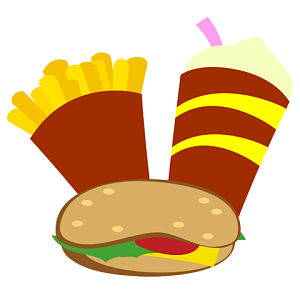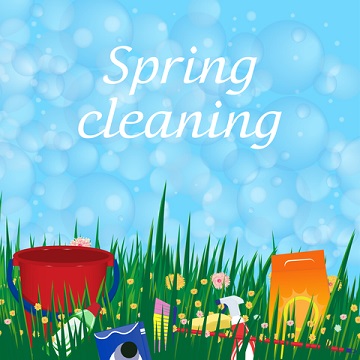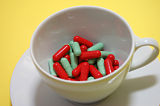Is “Spring Cleaning” Your Body Ever a Good Idea?
The idea of detoxifying your body may be appealing, and heaps of commercial products crowd the market to tap into this desire. A google search for “detox diet products” brought up 2,220,000 results in less than a second.
“Detox diet” is a loose term, which may include everything from water fasting to juice fasting to eating restricted amounts of specified foods. These diets may last anywhere from a day to weeks, or even longer. Some involve prescribing profitable supplements and other products, while others rely on home remedies.
One thing pretty much all these diets have in common is their vague claims. For example, you may be promised you’ll “get rid of toxins” (which toxins?) or “cleanse your body” (of what, and has rigorous science shows this is true?). The hope is you won’t ask too many critical questions.
There are three main reasons why you might be interested in a detox diet. One is valid, one is iffy, and one is potentially downright dangerous. I’ve called these reasons:
- Kickstart change;
- Draw a line; and
- Obliterate the past
KICKSTART CHANGE
There is nothing inherently dangerous about temporarily improving your food choices. If you are doing this to try on a whole foods, plant-based diet and see how you feel, I encourage it. The best-known program which provides a platform for this approach is the Kickstart Program sponsored by the Physicians Committee for Responsible

When you are clearly headed for a change, but deciding to try before you buy, a temporary change to a healthier diet may be appropriate
Medicine (PCRM).
This online program provides recipes, information, encouragement, and other tools for you to commit to a whole foods, plant-based diet for 21 days. You will be eating a wide range of delicious plant foods and not restricting calories or amount that you eat.
You don’t need to sign up for the PCRM program to go with this strategy. What makes this approach to temporary improved diet change valid is your intention. You simply want to try on a whole foods, plant-based diet for a few weeks before deciding what degree of permanent change you decide to make.
DRAW A LINE
You are looking for a radical, short-term cleanse approach (often a juice fast or another method that greatly restricts calories) so you can draw a line between past unhealthy food choices and what you fully intend to be a healthier diet going forward. You might be trying to reset your taste buds or jumpstart weight loss. You are erecting a psychological barrier between the past and the present to build motivation. This approach is similar to making a New Year’s resolution, when the calendar change acts as the line in the sand.
Will this approach work? Many people start healthier diets with the best of intentions, but maintaining change is not easy. You need to build and sustain new daily habits, stock your pantry with different foods, learn new recipes and restaurant choices, and find support for better eating habits. While there is nothing inherently wrong with this approach, it is iffy in terms of expected effectiveness.

If your aim in detoxing is to make up for past mistakes, so that you can make them again without feeling critical of your choices, a detox diet can be dangerous
OBLITERATE THE PAST
If this is your reason for wanting to detox, you know you have been eating lots of unhealthy foods. You don’t clearly understand the effect of this on your body, but hope that you can stave off the consequences by getting rid of nameless “toxins” through some short-term fix that is unpleasant enough to make you feel like you’ve done something. Then you will feel less guilty jumping back to your old diet when the cleanse is over.
You might even gratefully resume your old habits with an especially unhealthy meal. In this way, the detox attempt actually enables future poor nutrition and is dangerous.
SUMMARY OF DETOX DANGERS
Your body has natural means to get rid of toxins. The organs involved include your liver, kidneys, digestive system, lungs, and skin. There is no valid scientific information to support that the majority of detox diets and products do anything to enhance these built-in processes. A detailed 2014 review in the Journal of Human Nutrition and Dietetics concluded “there is no compelling evidence to support the use of detox diets for weight management or toxin elimination…sustained healthy habits are of greater long-term value than the quick fixes offered by commercial detox diets.”
A long-term switch to a whole foods, plant-based diet can prevent and even reverse many chronic health problems. Once you examine the facts, it’s clear that short-term detox diets are more likely to permanently eliminate dollars from your pocket than they are to eliminate toxins from your body.
But wasted money is not the only danger of many detox diets. Here are some other hazards to be aware of.
Short-term dangers:
- Persistent organic pollutants (POPs), which are among the most dangerous substances you consume in food, are soluble only in fat and so are stored in your fat cells. When you lose weight quickly, POPs can move into your blood in significant amounts, challenging your liver and greatly increasing in concentration in your brain. The effect of this is not well-understood, but is likely to be hazardous.
- The bacteria in your gut, which are fundamental to good health, may be impacted in unknown, possibly unhealthy, ways by detox diets.
- The diet and its side effects may increase stress and levels of the stress hormone cortisol.
- If you are using commercial products, it’s important to understand that the health claims of these products do not need to be scientifically verified, and unsupervised manufacturing processes mean that you really don’t know what you are consuming.
Longer-term dangers:
- A series of prolonged, unwise “detoxes” may damage some of your organs permanently.
- The “detox” mindset may encourage eating disorders.
- Most commonly, you will feel a series of detox attempts have “cleansed” you from past errors, so you can keep eating all the animal and processed foods you want, as long as you periodically “detox.” You never change to a

Rigorous science show a delicious, varied whole foods, plant-based diet can prevent, and even reverse, many chronic diseases
whole foods, plant-based diet.
Now you understand the dangers you know how to avoid them – simply focus on moving, gradually or quickly, to a whole foods, plant-based diet instead.
If you enjoyed this article, you may want to try these tasty whole foods recipes.
Intrigued? Now you can use our Whole Foods Blog Finder to target informative, fun postings on whole foods, plant-based diets. Quick information at no cost!
Post written by Janice Stanger, Ph.D. Janice authored The Perfect Formula Diet: How to Lose Weight and Get Healthy Now With Six Kinds of Whole Foods. This book outlines a whole foods, plant-based diet that can help you greatly reduce the amount of toxins you routinely consume – prevention is a way better strategy than detoxification is.
Tags: detox diet products, detox diets, diet cleanse, whole foods plant-based diet






